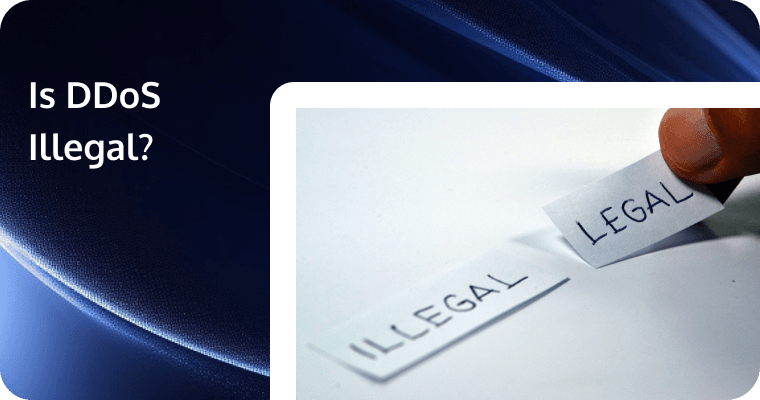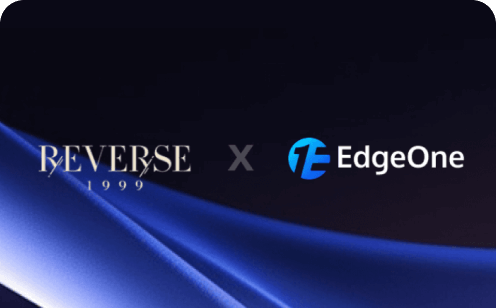Is DDoS Illegal? Understanding the Legal Consequences of Cyberattacks

On October 29, 2024, network service provider Cloudflare disclosed a record-shattering DDoS attack with peak traffic reaching 5.6 Tbps—the largest ever recorded. This massive assault, launched by a Mirai-based botnet, highlighted a troubling trend: DDoS attacks are becoming more powerful, more sophisticated, and more accessible to would-be attackers. As these incidents increase in frequency and severity, a critical question emerges for both potential perpetrators and victims: Is launching a DDoS attack illegal?
The answer might seem obvious to cybersecurity professionals, but confusion persists among the general public. Some view DDoS attacks as digital protests or pranks rather than serious crimes. This misconception has led many individuals—particularly young people with technical skills but limited legal awareness—to face severe consequences for actions they didn't fully understand were criminal.
This article examines the legal status of DDoS attacks across major jurisdictions, the potential penalties involved, and important considerations for businesses seeking to protect themselves.
What Exactly Is a DDoS Attack?
A Distributed Denial of Service (DDoS) attack overwhelms a target system with traffic from multiple sources, rendering websites and online services inaccessible to legitimate users. Unlike conventional cyberattacks aimed at data theft, DDoS attacks specifically target availability, effectively shutting down online operations.
Modern DDoS attacks typically employ botnets—networks of compromised computers and IoT devices controlled remotely—to generate overwhelming traffic volumes. Attack methods range from simple volumetric floods to sophisticated application-layer attacks targeting specific vulnerabilities in web applications.
Where Are DDoS Attacks Illegal?
United States Laws Against DDoS
In the United States, DDoS attacks clearly violate the Computer Fraud and Abuse Act (CFAA), a federal law criminalizing unauthorized access to protected computers. Courts have consistently interpreted DDoS attacks as "causing damage without authorization" under the CFAA.
Specifically, the law prohibits knowingly causing the transmission of a program, code, or command that intentionally causes damage to protected computers. DDoS attacks fall squarely within this definition, making them federal offenses potentially punishable by up to 10 years in prison for first-time offenders, with enhanced penalties if the attack targets critical infrastructure or causes significant economic damage.
European Union Legal Framework
The European Union addresses DDoS attacks through the 2013 Directive on Attacks Against Information Systems, which requires member states to criminalize "intentionally seriously hindering or interrupting the functioning of an information system by inputting computer data, by transmitting, damaging, deleting, deteriorating, altering or suppressing such data."
All EU member states have implemented legislation criminalizing DDoS attacks, with penalties varying by country but typically including substantial prison sentences. The Network and Information Systems (NIS) Directive further strengthens this framework by requiring critical infrastructure operators to implement cybersecurity measures against such attacks.
United Kingdom Legislation
The UK's Computer Misuse Act specifically criminalizes unauthorized acts designed to impair computer operation. Section 3 of the Act directly applies to DDoS attacks, making it illegal to perform acts that knowingly cause "impairment to the operation of any computer" or "prevent or hinder access to any program or data." Violations can result in imprisonment for up to 10 years.
International Consensus
Nearly every country with developed cybercrime legislation explicitly criminalizes DDoS attacks. The Budapest Convention on Cybercrime—ratified by over 60 countries—provides a framework for international cooperation in prosecuting such attacks, making DDoS a globally recognized criminal offense.
What Happens If You Get Caught Launching a DDoS Attack?
The legal consequences for conducting DDoS attacks are not theoretical. Numerous prosecutions demonstrate that authorities take these crimes seriously:
Notable Case Examples
- In 2019, the operators of "webstresser.org," once the world's largest DDoS-for-hire service, received sentences ranging from community service to two years in prison, depending on their roles.
- A UK teenager who conducted DDoS attacks against major gaming platforms was sentenced to two years in prison despite being a minor when some of the attacks occurred.
- Members of the hacktivist group Anonymous received multi-year prison sentences for DDoS attacks conducted against payment processors in "Operation Payback."
Civil Liability
Beyond criminal charges, DDoS attackers face substantial civil liability. Targeted organizations can sue for damages resulting from:
- Lost revenue during outages
- Reputation damage
- Incident response costs
- Customer compensation
These lawsuits often seek damages far exceeding criminal penalties. Several gaming companies have successfully obtained judgments in the millions against DDoS attackers who targeted their services.
Is My 'Stress Testing' or 'Digital Protest' Actually Illegal?
Despite the clear illegality of DDoS attacks, several misconceptions persist:
"Stress Testing" Without Permission
Some individuals claim they were merely "stress testing" websites to identify security weaknesses. Without explicit prior written permission, such actions remain illegal regardless of intent. Legitimate penetration testing requires detailed scope agreements and authorization.
Political Protest Defense
Some groups justify DDoS attacks as legitimate forms of political protest or "digital sit-ins." Courts have consistently rejected this defense, ruling that disrupting services violates computer crime laws regardless of political motivation.
DDoS-for-Hire Services
Many online services advertise "stress testing" or "IP booters" while actually providing DDoS attack capabilities. Using these services remains illegal, and numerous operators have faced prosecution. Law enforcement agencies regularly target these services for shutdown.
How Can I Protect My Business Without Breaking the Law?
Organizations should focus on DDoS protection rather than retaliation:
For Businesses Under Attack
- Report incidents to law enforcement agencies like the FBI's Internet Crime Complaint Center or equivalent national authorities
- Document impacts including financial losses, customer complaints, and operational disruptions
- Implement DDoS protection services that can absorb and filter attack traffic before it reaches your infrastructure
- Never launch counter-attacks, which could trigger additional legal exposure
For Individuals
The simplest guidance is straightforward: never participate in DDoS attacks under any circumstances. This includes:
- Avoiding "booter" or "stresser" services
- Not downloading or using DDoS tools, even out of curiosity
- Being cautious about requests to install unknown software that could create botnet nodes
- Understanding that "just for fun" attacks against friends or small websites still violate the law
Conclusion: Staying on the Right Side of the Law
DDoS attacks are unequivocally illegal in virtually all jurisdictions with cybercrime legislation. The legal consequences include criminal prosecution with potential prison sentences, significant financial penalties, and civil liability for damages caused. Claims of "ethical testing" or "digital activism" have consistently failed as legal defenses when conducted without explicit authorization.
As attack methods grow more sophisticated and damaging, law enforcement agencies worldwide continue to prioritize prosecution of these crimes. The most prudent approach for organizations is to focus on implementing robust protection measures like EdgeOne, which offers comprehensive multi-layered DDoS protection capable of mitigating even the largest and most complex attacks through its global network of scrubbing centers and advanced traffic analysis.
If your organization needs guidance on DDoS protection strategies or assistance evaluating your current defensive capabilities, we welcome you to contact our security team. Our experts can help assess your specific vulnerabilities, recommend appropriate safeguards, and demonstrate how our protection services can defend against the evolving landscape of DDoS threats—keeping your business both secure and on the right side of the law.
Frequently Asked Questions
Q1: Can I go to jail for conducting a DDoS attack?
A1: Yes, DDoS attacks carry prison sentences in most countries—typically ranging from 2 to 10 years depending on attack severity, target type, and resulting damages.
Q2: If someone DDoSed me, how do I report it?
A2: Report the attack to your local FBI field office, Internet Crime Complaint Center (IC3), or equivalent national cybercrime unit, providing timestamps, traffic logs, and any identifying information about the attackers.
Q3: Are there any circumstances where DDoS attacks are legal?
A3: DDoS techniques are only legal when conducted with explicit written permission as part of authorized security testing within clearly defined parameters and scope.
Q4: Does using a VPN protect attackers from being caught?
A4: No, law enforcement has successfully traced and prosecuted DDoS attackers despite VPN usage through various technical and investigative methods including traffic analysis and service provider cooperation.
Q5: Can minors be prosecuted for DDoS attacks?
A5: Yes, many prosecutions have involved minors, though sentencing may differ from adult cases—juvenile offenders often receive reduced sentences but still face detention, probation, and permanent criminal records.

